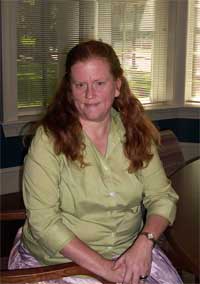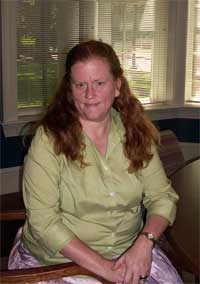 Fulbright grant will fund project in former Soviet Republic
Fulbright grant will fund project in former Soviet Republic
KINGSTON, R.I. — August 28, 2006 — Lisa Lahr, a 2006 URI alumna, will spend the next 10 months in Georgia. This will be her fourth trip to the former Soviet Republic and her longest stay.
The trip is underwritten by a $19,500 Fulbright grant. Lahr, a Middletown resident, is one of 1,200 Americans who will travel abroad this academic year through the Fulbright Student Program. Established in 1946 under legislation introduced by the late Sen. J. William Fulbright of Arkansas, the program is designed to build mutual understanding between Americans and the rest of the world.
Lahr’s previous visits to Georgia have been with camera in hand. A trip in 2005, funded by a Michael J. Metcalf Memorial fellowship, resulted in an exhibit of some of her 3,000 images of Georgians at work and at play.
The Fulbright scholar would like to have others visit, work, and enjoy the country that captured her heart while she captured it on film. But the language stops them.
She wants to remove the barrier.” I would like to make the language more accessible,” says the 42-year-old who will study at the International Center for Georgian Language Research in Tbilisi. “More people would go to Georgia if they weren’t afraid of the language.”
While Lahr admits that the Georgian language with its western Asian roots is complex, she says it’s not all that hard. She should know. She spent two months at Indiana University’s Summer Workshop for East European and Central Asian Language. She found the experience daunting at first since her classmates were primarily linguists who spoke several languages.
But the experience also proved to be a turning point. “I’d like to remove the fear of the language,” Lahr says. “Make it easier for the doctor in Doctors Without Borders, the businessman, the AIDS worker, the nurse, the musician, and more to come to the country.
“More people knowing the language will aid in its development, after all we live in a global marketplace. And it would work both ways. Georgians — historians, geneticists, dancers, etc. would finally be recognized for their work.”
She hopes to collaborate with an American art teacher in Georgia to create a Georgian alphabet book filled with words and culture.
“Nothing intimidating. It would be a kind of pre-Berlitz. Perhaps it would be something a 16-year-old could pick up at her local Barnes and Noble, become curious, and investigate further.”
URI News Bureau photo

